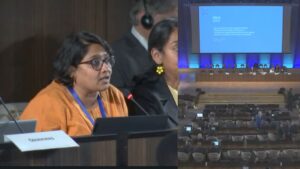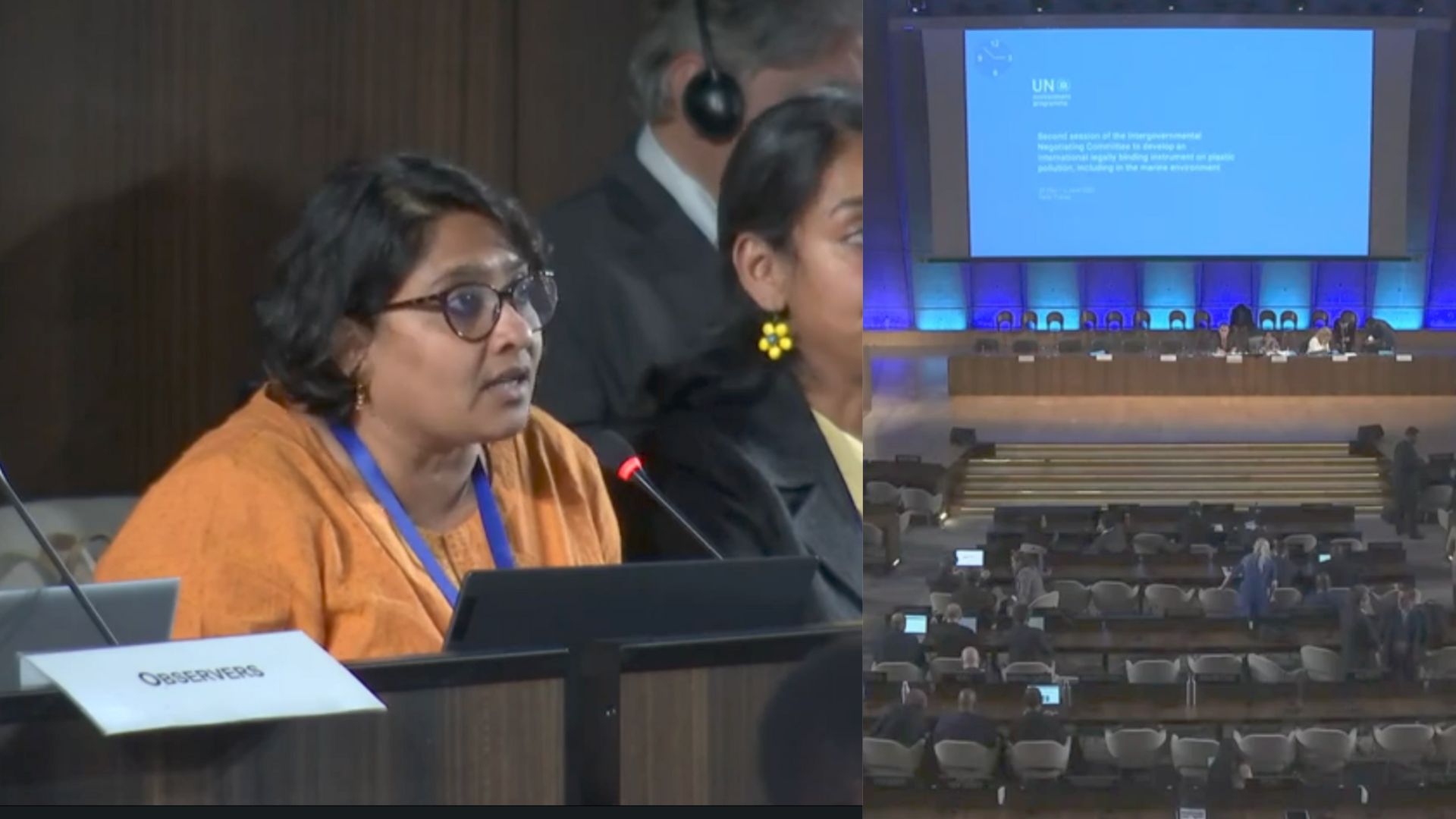 The UN’s second round of International Negotiating Committee (INC-2) meetings for a global plastics pollution treaty ended in frustration last week after half of the five-day event was spent re-debating procedural rules, such as the treaty’s voting procedure. While the deadlock was eventually broken, environmentalists accuse some industry-backed governments of conspiring to delay the treaty and diminish its powers.
The UN’s second round of International Negotiating Committee (INC-2) meetings for a global plastics pollution treaty ended in frustration last week after half of the five-day event was spent re-debating procedural rules, such as the treaty’s voting procedure. While the deadlock was eventually broken, environmentalists accuse some industry-backed governments of conspiring to delay the treaty and diminish its powers.
Plastic pollution was not discussed until the third day, and despite overcoming the impasse on voting mechanisms – a question of whether or not each of the 170 nations involved in the negotiations would have some form of veto power – international divisions on the treaty’s stipulations remain, and the procedural rules are still not clearly defined.
The “High Ambition Coalition” (HAC), which includes the EU, Japan and numerous African and South American nations, is pushing for global mandatory plastic reduction targets, which the coalition says could end plastic pollution entirely by 2040.
Opposing nations like the US and Saudi Arabia call for a “country-driven” approach, allowing individual nations to define their own production and waste management strategies because they say differing national circumstances require self-determination to address plastic pollution issues effectively.
David Azoulay, director of the Environmental Health Program at the Center for International Environmental Law (CIEL), says that “precious time” was lost during the negotiations. “When we compare where we were when we walked in the door to where we are now, we have lost ground by re-opening already agreed-upon text,” he says.
Derailment conspiracies
Some environmentalists, like Greenpeace USA’s global plastics campaign lead, Graham Forbes, says that: “Time is running out, and it is clear from this week’s negotiations that oil producing countries and the fossil fuel industry will do everything in their power to weaken the treaty and delay the process.”
During the negotiations, Russia, China and Saudi Arabia rallied against the HAC’s proposal for a majority voting system, which would enforce the treaty’s final draft according to a two-thirds majority ballot count if a consensus is not reached.
The opposing nations instead demand a consensus system granting one or several countries veto powers, which could substantially alter the treaty’s provisions and potentially prolong negotiations even further.
Despite two days of bartering over these voting procedures, an agreement was made to “recall a lack of agreement” if and when a vote on the treaty is held. This settlement was made so that state representatives could move on to substantial discussions over how plastic pollution should be bound by international law.
However, Break Free From Plastic states that the “provisional” draft procedural rules could cause disruption at INC-3 again.
“The outstanding issues include whether EU member states will each have a vote, whether they will be treated as a single bloc during voting, and whether decisions should only be arrived at via consensus,” explains BFFP. “To many observers, the latter seems to be a ploy to weaken strong measures that could be adopted to reduce plastic production.”
Rocky road to INC-3
The HAC is aiming to end plastic pollution entirely by 2040.
With the INC-2 concluded, all eyes are ahead for the third round of negotiations, planned for November this year in Nairobi, Kenya.
Fears that further delays will be caused by the petrochemical industry, which for some states, including Saudi Arabia, are central economic commodities, are already being espoused by critics who deem the presence of business representatives a conflict of interest.
Swathi Seshadri of the Institute for Critical Action Centre in Movement, India, says: “Major fossil fuel and petrochemical producing countries stonewalled the negotiations from the start, delaying substantive negotiations by opposing a democratic decision-making process, which many of these supposedly thriving democracies uphold in their own countries.”
“None of these countries’ opening statements even mentioned the reduction of production and consumption of polymers. Despite several calls for keeping polluters out of the negotiations, representatives of over 190 corporations, including major polluters like Total Energies and Coca-Cola, registered to participate. This is a clear conflict of interest and a furthering of the state-industry complex,” she says.
Seshadri further asserts that member countries “need to truly own their role as representatives for the millions of people they represent” and “stop aligning with the interests of corporate greed.”
This article was originally published in Packaging Insights and can be read here.
Centre for Financial Accountability is now on Telegram. Click here to join our Telegram channel and stay tuned to the latest updates and insights on the economy and finance.

